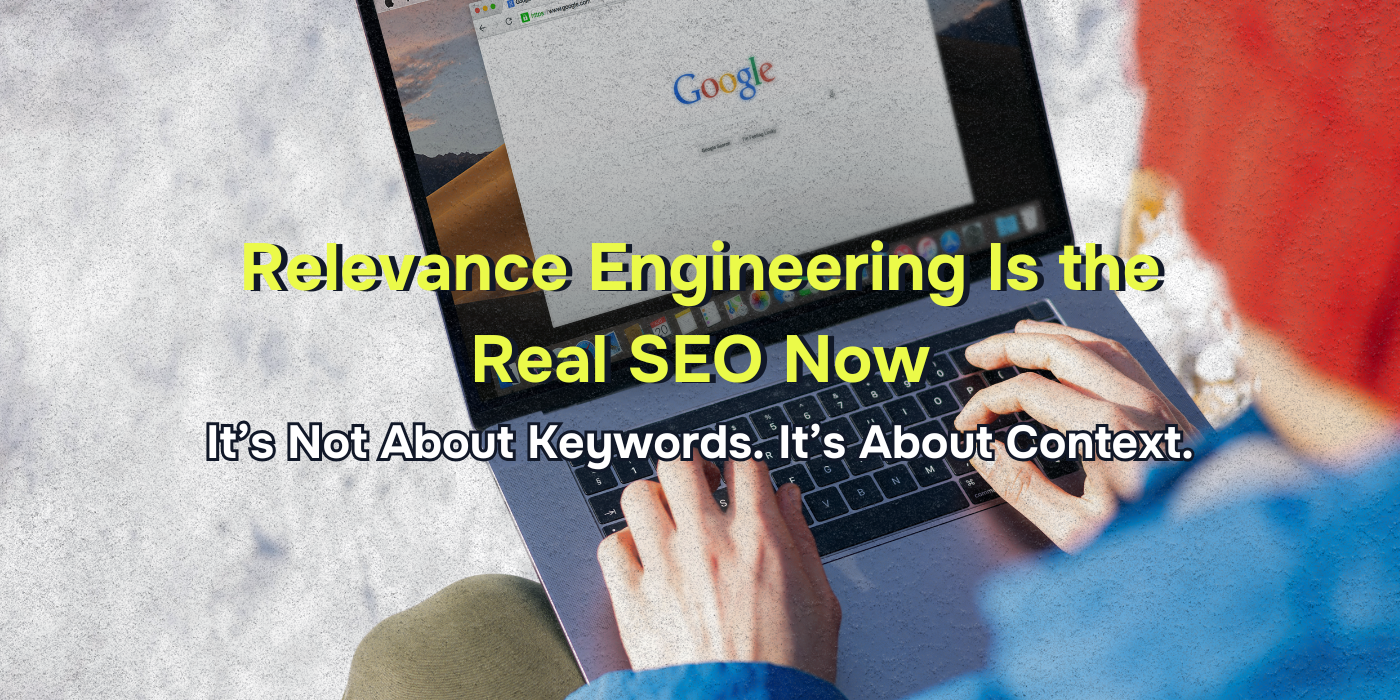Key Takeaways
- Ranking is no longer the goal—being understood is.
- AI-first SEO prioritizes semantic clarity over keyword density.
- Your site needs to be engineered for reasoning, not just indexing.
- Authority now comes from structured, context-rich content networks.
Let’s stop pretending SEO is just a checklist.
Google doesn’t care how many keywords you crammed into a blog. It doesn’t reward volume anymore—it rewards structure, clarity, and contextual alignment. If you’re still treating SEO like a keyword contest, you’re building visibility on a foundation that no longer exists.
What you need now is relevance engineering.
What Relevance Engineering Actually Is
Relevance engineering isn’t a buzzword. It’s the technical practice of shaping your content and site architecture around how modern search engines reason—not rank.
It means engineering your site to:
- Reflect real-world relationships between topics
- Surface the most helpful answer, not just the most optimized page
- Be intelligible to both humans and machines—especially AI systems that prioritize understanding over indexing
This is where SEO stops being about “traffic” and starts being about authority inside generative search experiences.
Why Most SEO Is Still Stuck in 2014
Here’s the uncomfortable truth: a lot of “best practices” still being sold today are completely disconnected from how Google processes information in 2025.
They focus on:
- Surface-level keyword stuffing
- Shallow topical coverage
- Static site hierarchies
- Generic backlinks without context
What works now is:
- Entity relationships
- Real-time contextual inference
- Semantic link modeling
- Multi-format content that feeds AI systems
If your SEO strategy doesn’t account for how Google’s algorithms are now evaluating meaning—through LLMs, embeddings, and passage retrieval—you’re optimizing for a system that’s already obsolete.
How I Do Relevance Engineering for Clients
Relevance engineering means building systems—not just assets. Here’s what that looks like in practice:
1. Query Graph Mapping
We don’t start with keywords—we start with knowledge architecture. We build a graph of the queries, sub-queries, and follow-up questions that define a topic space. This isn’t just for matching—it’s for predicting what a user (or AI) will ask next.
2. Content Layering for Contextual Surfacing
We design content networks, not just individual pages. Supporting content feeds cornerstone assets. FAQs feed AI snippet surfaces. We engineer content to be cited, not just clicked.
3. Internal Link Intelligence
Forget the “related post” plugin. We create intentional link pathways that mirror topic progression and user logic. The goal: reduce crawl ambiguity and improve semantic clarity across the site.
4. Technical Framing for Machine Consumption
We use schema markup, semantic HTML, and structured components that allow Google to parse our content the way it parses Wikipedia—not a blog roll.
5. Feedback Loops on Relevance, Not Just Rank
Rankings lie. Visibility in zero-click environments, inclusion in generative answers, and growth in semantic coverage—that’s what we measure.
Final Thought
Relevance engineering is how you make your content matter in the age of machine reasoning. It’s not about writing more. It’s about architecting clarity.
If you want to win in a world where Google answers before anyone clicks, your content has to earn its place in the reasoning chain.
This isn’t classic SEO with new paint. It’s a rebuild.
FAQs
What’s the difference between traditional SEO and relevance engineering?
Traditional SEO chases visibility through keywords and backlinks. Relevance engineering focuses on how content is interpreted, connected, and reused by AI systems to answer real user intent.
Can relevance engineering work for small businesses or niche sites?
Absolutely. In fact, it’s often easier to implement on smaller, more focused sites. Relevance is about precision—not scale.
How do I know if my content is being used in AI-generated search?
Watch for inclusion in zero-click results, generative answer citations, and tools that track entity-level recognition. It’s not just about page rank anymore—it’s about machine trust.


